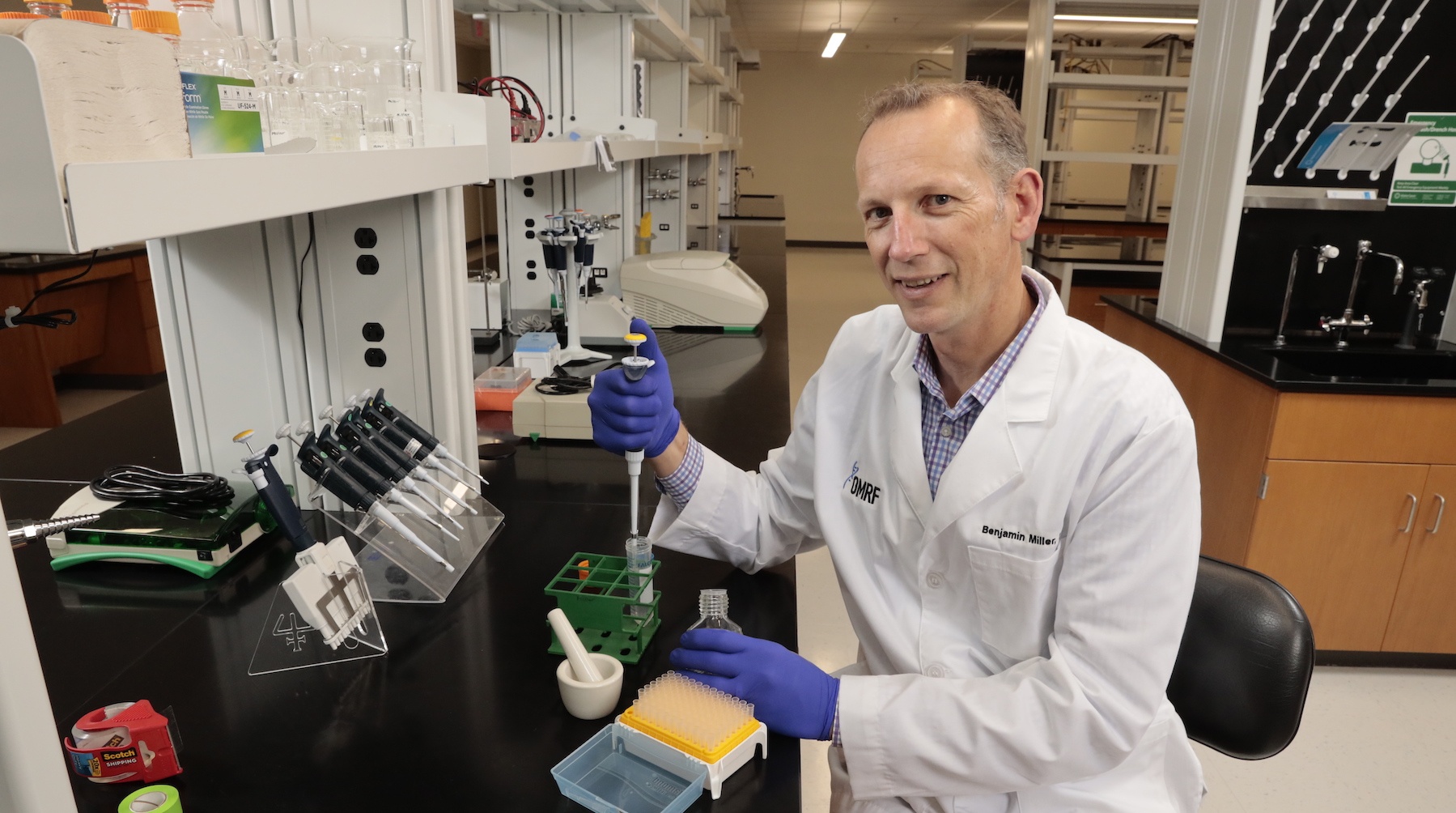The National Institutes of Health has awarded two grants totaling $1.2 million to the Oklahoma Medical Research Foundation for research on age-related decline in mobility and health.
OMRF scientist Benjamin Miller, Ph.D., received the pair of grants to study how to prevent muscle loss in older adults and other diseases of aging.
In the first project, Miller’s lab challenges the long-held idea that muscle cells cannot replicate their own DNA, which makes muscle cells rely on other types of cells for help.
Although exercise can slow muscle loss, there are currently no effective drug treatments to slow the loss of muscle that people experience as they age. Muscle loss can be devastating, leading to irreversible loss of mobility and ultimately a loss of independence.
“There is a continued need for therapies to preserve muscle with age. Stem cell therapies, while a hot topic, do not work very well in muscle,” said Miller, a physiologist in OMRF’s Aging and Metabolism Research Program. “But if we can show muscle cells can replicate themselves, we can design treatments that harness what they already have to help themselves.”
For the second grant, Miller will collaborate with OMRF colleague Bill Freeman, Ph.D., to launch a study into why damaged and dysfunctional proteins accumulate in the brain and muscle as we age, and how to slow it down. This lack of quality control within cells leads to conditions like Alzheimer’s, heart disease, diabetes and muscle loss.
The body cannot repair proteins, but instead breaks down old ones and makes new ones. To date, scientists could only study this quality control as an average of all proteins and cells in a tissue. But by using new approaches, the OMRF researchers hope to examine cell-by-cell and protein-by-protein to understand which are causing the aging process.
“There are multiple cell types in these tissues with different functions and responses to aging. How each of these cell types act on an individual level needs to be better understood. Because we have been restricted in how we could study this for so long, we think the current biological understanding is missing a lot,” said Freeman, a member of OMRF’s Genes and Human Disease Research Program.
With the knowledge of which proteins are key to aging, the researchers hope to find more specific targets for a wide range of age-related diseases in time.
“Both projects are using new ways to look at old problems,” said Miller. “They could open the door for the design of new, better treatments for many diseases because they help us better understand the problem that needs to be fixed.”
Preliminary work leading to these grants was funded locally by the Oklahoma Center for Adult Stem Cell Research, a program of TSET, and the Presbyterian Health Foundation. The new grants are funded by National Institute of Arthritis and Musculoskeletal and Skin Disease grant no. R21AR077387 and National Institute on Aging grant no. R56AG067754, both part of the NIH.



